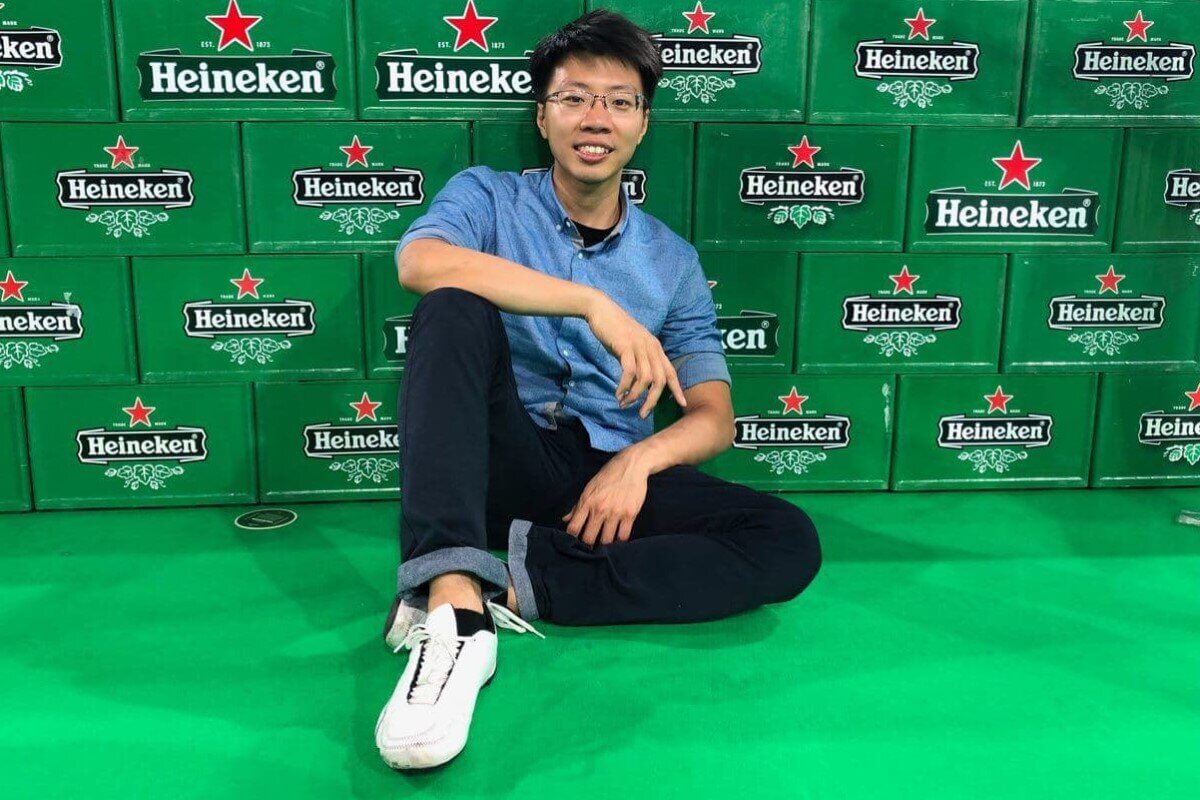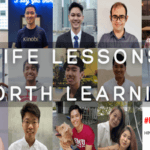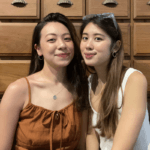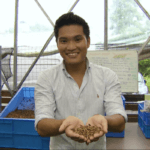Hindsight is 2020 (#HI2020) is a ground up initiative founded and led by SMU Lee Kong Chian School of Business Class of 2020 graduate Jessica Lee Yi Ling. In this series, she uncovers personal stories of resilience, courage and love amidst the crazy year that was 2020. Through the reflections and learnings shared in #HI2020, she hopes to empower internship and job seekers to improve their status quos and encourage aspiring entrepreneurs and volunteers to pursue their passions in 2021.
By Jessica Lee, Alumna, SMU Lee Kong Chian School of Business
Roller-blading at high speeds. Playing board games with strangers. An almost disturbing obsession in trying out things entirely novel to him. These constitute the smorgasbord of interests enjoyed by SMU Lee Kong Chian School of Business alumnus, Aaron Er.
One of his more wholesome interests? Volunteering his skills and time to benefit others.
A journey of volunteering, which started in his final year in SMU, has since led Aaron to initiatives in Human Library SG and Social Impact Catalyst. Despite 2020’s disruptions, he had managed to grow this particular interest of his.
Here are three key takeaways from Aaron:
- The only constant in life is change. Internalising this adage helps one to accept and embrace every circumstance as part of life’s adventure.
- Even in hard times, it is important to look at what we have, and not just what we don’t have.
- Balance is key to building sustainability. Just like riding a bicycle, we need to continuously strive and move in order to maintain our balance.
When did you start volunteering and what kind of volunteering work have you done?
My volunteering journey started in 2015, in my final year at SMU. Since then, I have been involved in three passionate but different groups.
I joined the Citi-SMU Financial Literacy Programme as a Trainer in 2015 hoping to do skills-based volunteering. Having underwent its Train-the-Trainer programme in 2015, I started to engage with JC and ITE students via interactive workshops and events. In 2016, I had the privilege to lead the club as its third President. Together with my exco, we embarked on a series of initiatives to further grow the club (internally and externally). Currently, we are launching an official alumni arm in 2021 to further deepen these connections.
The Human Library is a movement started in Denmark in 2000 aimed to challenge stereotypes and prejudices through dialogue. The Singapore arm was started by a very passionate team and supported by very friendly and open volunteers from all walks of life. Joining in 2017, I had the opportunity to serve as facilitator to augment the sharing experience between our courageous books and enthusiastic readers. Since then, our team had went on to organise and inspire many more events. Undeterred by the Covid situation, we also started an inaugural series of online Human Library events to ensure that learning, empathy, and growth still continued for all our stakeholders especially during this period.
Lastly, Social Impact Catalyst is Singapore’s first youth-centric organisation focused on social entrepreneurship and innovation. Having attended the Trainer Induction Programme, I subsequently joined the community to develop content and conduct workshops for students who want to lead social initiatives. We had our first run with SMU students in late 2020, and the team is currently on an ongoing initiative with ITE to equip them with both skills and industry mentorships to power their social entrepreneurship journey.
How did you find out about these non-SMU-led volunteering projects and what made you decide to join them?
I found out about these mainly through my friends. The decision to join them was simple—they spoke to the causes I am passionate about and interested in. I also liked the communities, and believed that my skills and experience would be of support to them.
To be honest, volunteering opportunities are readily available everywhere online. Even if the role may not fit what you want at first, take the chance to put one foot in, meet the community, and see whether it resonates with you. After that, you will be able to think of many other ways to help support the cause and even craft the role that you want!
Based on your experiences this year, how did Covid-19 impact the volunteering scene / organisations you were volunteering with?
This would be probably the same everywhere—the unfamiliarity of non-face-to-face interactions affecting how well we can engage with our audience. This led to many initiatives being cancelled or delayed indefinitely. There were many struggles on this front as volunteers fought to make sense of the new normal and tried to come up with new creative ways of working.
Which beneficiaries are most negatively impacted by the ongoing pandemic and what are their main struggles?
In my own biased sample size prone to priming and recency effect, I observed a particularly vulnerable group in the working adults living in small physical spaces together with children and elderly. The combination of increased stress brought about by Covid in terms of workload, job security, incessant distractions, and reduced personal space led to a large impact on their mental health. All of these exacerbated the situation as they struggled to cope with both their personal responsibilities and professional life.
What did Human Library SG do differently this year to continue to keep their social initiative alive?
This period was actually a great opportunity for Human Library and we took this chance to learn and grow. After adjusting to the new normal of online events and meetings, our community boldly launched our first ever online Human Library event. Previously, all events were physical events as we greatly valued the rich medium of face-to-face interactions—especially when we engage in deep topics to challenge norms and stereotypes.
Online events were much easier to organise compared to traditional ones with physical venues and considerations. After our first successful pilot, we held about five events in a span of two to three months—compared to about two to five physical events annually in the previous years.
We also learnt that our books (people who share their stories) felt safer as they owned the space they were in. We were also better able to manage the event through in our digital space (timers, use of slides, etc).
For myself as a facilitator—it was also a plus to be able to observe all of the group’s cues and expressions in one single view as this allowed me to better facilitate the conversations.
I believe you have met many different walks of life through your time with Human Library Singapore. What have you learnt and what would be your most memorable experience with them?
“Listen with an open mind and heart, there is always something to learn from others.”
Every Human Library event has always reinforced this perspective on me, and made me understand that there is so much that I still do not know about everything.
One of the most memorable experiences I had was during a party we hosted after a major event.
We invited everyone—participants, volunteers, and books. It was halfway in when I looked up from the conversation I was having, and it hit me what a ragtag and seemingly random group we were! What made it special was that there wasn’t any awkwardness—everyone had smiles on and were engaged in conversations across a wide spectrum of topics.
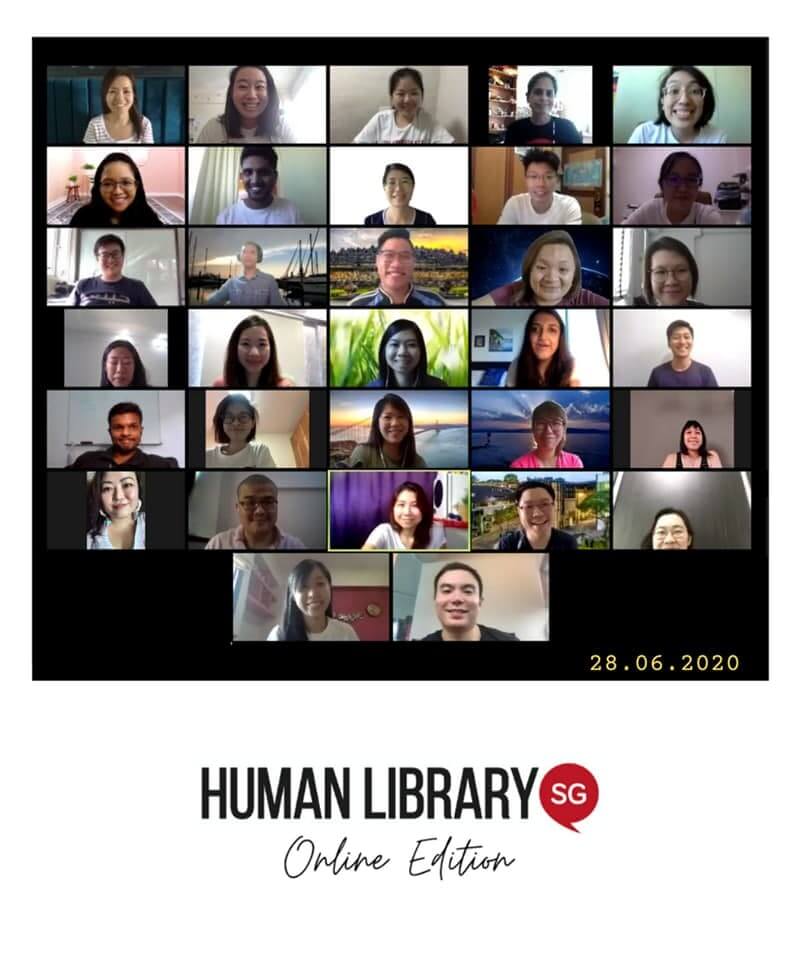
Instead of thinking about reducing the amount of volunteering work you were doing in times of Covid-19, you actually went on to join Social Impact Catalyst. Share how and why you made that decision.
It was a simple decision for me—I am a strong believer that as you keep an open mind and try new things in life, you will be able to understand yourself better.
Covid-19 had provided a lot of time for me to think and reflect, and I realised that the opportunity to volunteer with Social Impact Catalyst would allow me to give back and also grow at the same time. To some it might have seemed like more work and commitments, however you might be surprised to find out how some of the “work” you want to do for yourself is actually relaxing and enjoyable.
What are some misconceptions that you think people have about community service projects? What would you say are traits one must have to be a volunteer?
Again with my biased sample size and limited perspective, I would put forth that some people tend to associate community service projects as menial and mundane tasks, and the occasional thing they need to do to rack up brownie points for their resume.
Impactful community service projects require an immense amount of planning—the consequences across multiple stakeholders have to be very carefully considered. It is not a one-off event shared on Instagram. It has to be a deliberate and sustained effort to achieve the positive sustainable impact that is beneficial to society.
Volunteers come with a plethora of skills and they are all welcome. However if I were to narrow down on one, I would submit responsibility as the most important trait. Anyone can volunteer and contribute, but take away responsibility and the consequences could be very devastating.
What was your most meaningful experience during volunteer work?
To name the most recent one, it was facilitating a conversation in which a sexual violence survivor courageously shared about her experience and journey. Her story also inspired the people in the group to share their own stories as well—they not only grew in empathy, but also drew strength, support, and courage from each other.
What are the volunteering causes that you feel most strongly for and why?
If anything, I feel the most strongly for movements and causes involving young adults and adults who want to make the world a better place via mutual understanding and support.
Recently, mental health has started to become a more openly and widely discussed issue. More than ever, I believe it is extremely important to recognise and give weight to mental health issues.
Culture and tradition in Singapore had primed us to downplay mental health issues as being unimportant—however in this trying and volatile times, mental health and resilience are required more than ever to manage the vicissitudes of life.
What’s next for you in terms of volunteering and what are your hopes for the community in 2021?
Mentoring! I had received so much from my mentors, so now is the time to learn and also give back as a mentor. My hopes are for the community to reflect on their learnings from the past year, decide where their priorities are, and re-calibrate their balance for their optimum happiness in 2021.
This article has been adapted from LinkedIn for republishing on The SMU Blog with permission. Learn more about Hindsight is 2020 here.
Ready to embark on your SMU experience? Accept your offer today!

